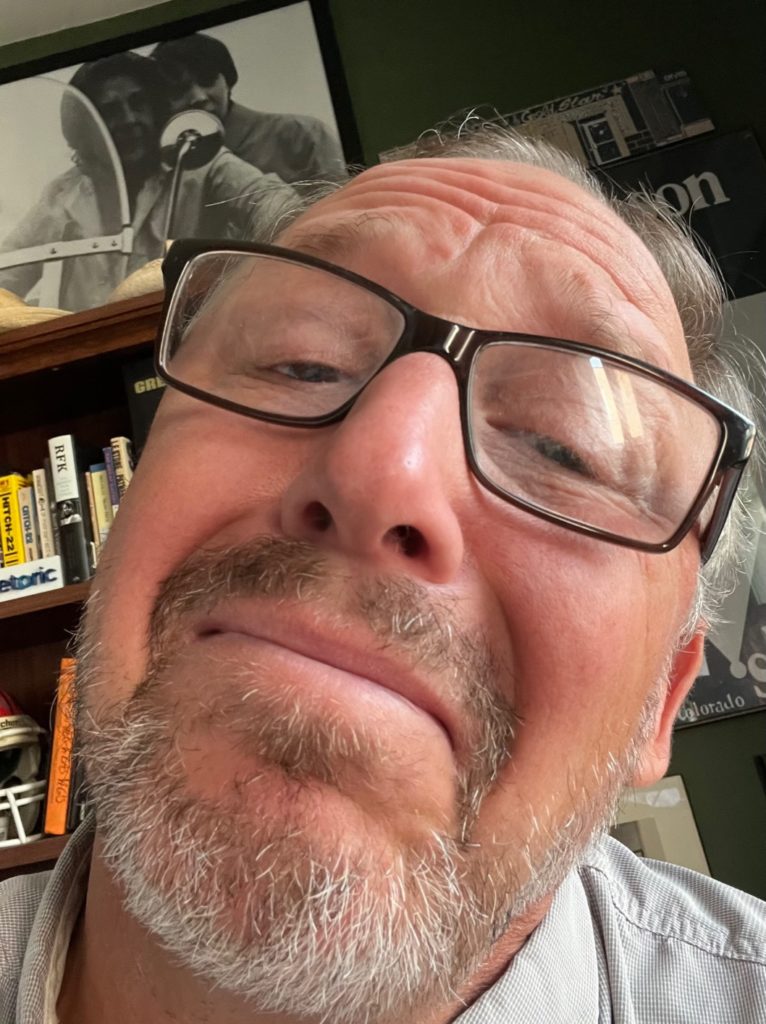My wife does the laundry, I do the dishes. My wife waters the flowers, I mow the lawn. My wife generally finds new Netflix shows for us to watch. And I generally decide which words and phrases we’re going to ban in this house.
We don’t go for euphemisms around here, and you’ll never hear us say under this roof that someone “passed.” It’s “died.” (When my daughter was about four, she said to me that our goldfish “passed away.” I said, “Honey, in this family, we don’t say ‘passed away.’ We say, ‘died.’” I realized she understood the concept the next morning as I lay on the couch. “What are you doing, Dad?” “I’m snoozing.” “Dad, in this house we don’t ‘snooze.’ We ‘sleep.’”)
We don’t say “bless you” when we sneeze, because it’s not the Bubonic Plague anymore and we don’t think words are for wasting. You sneezed. Let’s move on.
When we order food or booze in restaurants, we don’t say we’re going to “do the turkey club” or “do a merlot.” Why? Because it’s just unnecessarily precious, when the single-syllabic “have” works just as well. “Do” is short for “douchy,” we feel.
As I say, most of these preferences come from the linguistically sensitive ear of Writer Guy.
But there’s one other word you won’t hear out of our mouths, and this one’s on my wife: “kiddos.”
My wife is a school teacher, who is professionally attuned to the rhetoric surrounding children, most of which is bullshit. Every staff meeting of schoolteachers and administrators is a form of liar’s poker in which the winning hand is always, “It’s about the children.”
Delivered with approximately this unctuous expression:

Once you’ve claimed that moral ground, all other considerations—budget cost, logistical practicality, teachers’ mental health, intellectual integrity—are out the window. Because, after all, “It’s about the children.” Issue settled. No more need be said. It’s all over but the pouting.
And so my wife, who has taught many (many) thousands of children in her 25-year career on Chicago’s West Side, is always suspicious when anyone claims to love children more than she does. Or, more to the point, to “like” them more than she does.
And that’s her beef with “kiddo,” she says. The term is used by “people who think kids are some precious little things. They think it makes them seem like they like kids more than you.”
That’s it! Why else would you use such a term-o, if not to signal your special smarmy-cutesy-totes-adorbs-cuddly-wuddly wuv for the children you’re raising, the kindergarten class you teach, or for that matter, the entire Graduating Class of 2022.
Kids are not bunnies, folks. They are human beings—beautiful and lovable we hope, but also, self-centered, dangerous little fools, with the self-control and judgment of your average meth addict. As anyone who has had any prolonged exposure to any of them well knows. Being their parents, their teachers, even their aunts and their uncles in any kind of an authentic way means not thinking of them, and not pretending to others to think of them, as “kiddos.”
Just kids. Kids will do just fine.
(All this came up the other day when I told my wife that I saw someone on Facebook refer to a “doggo.” “Who said ‘doggo’?!” she demanded to know.)
Love this. But don’t love “on my wife.” One of those instant cliches like “you’ve got this” and so forth. Something more fresh from a wonderful writer like you. And thanks for your refusal of passed. Died will suffice.
You’re absolutely right about “on my wife.” Hated that through three edits and failed to fix. That’s on me.
This reminded me how NIMBYs inevitably cite “safety of the children” when opposing anything and everything.
Absolutely, Alison. Anytime someone starts talking about “the children,” check for your wallet—it’s probably already gone.
I couldn’t seem to put this hatred for the term “kiddo” into words. I am sitting in a data analysis meeting for middle school students counting the number of times our principal refers to helping these “kiddos” reach their potential. (Get our numbers up!)
Thank you for articulating my distaste for the word “kiddo” !
Ditto. For some reason, the word feels disrespectful to me. From my perspective, the word minimizes who our students are.
Thank you so much for writing this; the use of ‘kiddo’ in “pediatric care settings” has stood out to me and left a really negative impression on me – and I thought I was the only one.